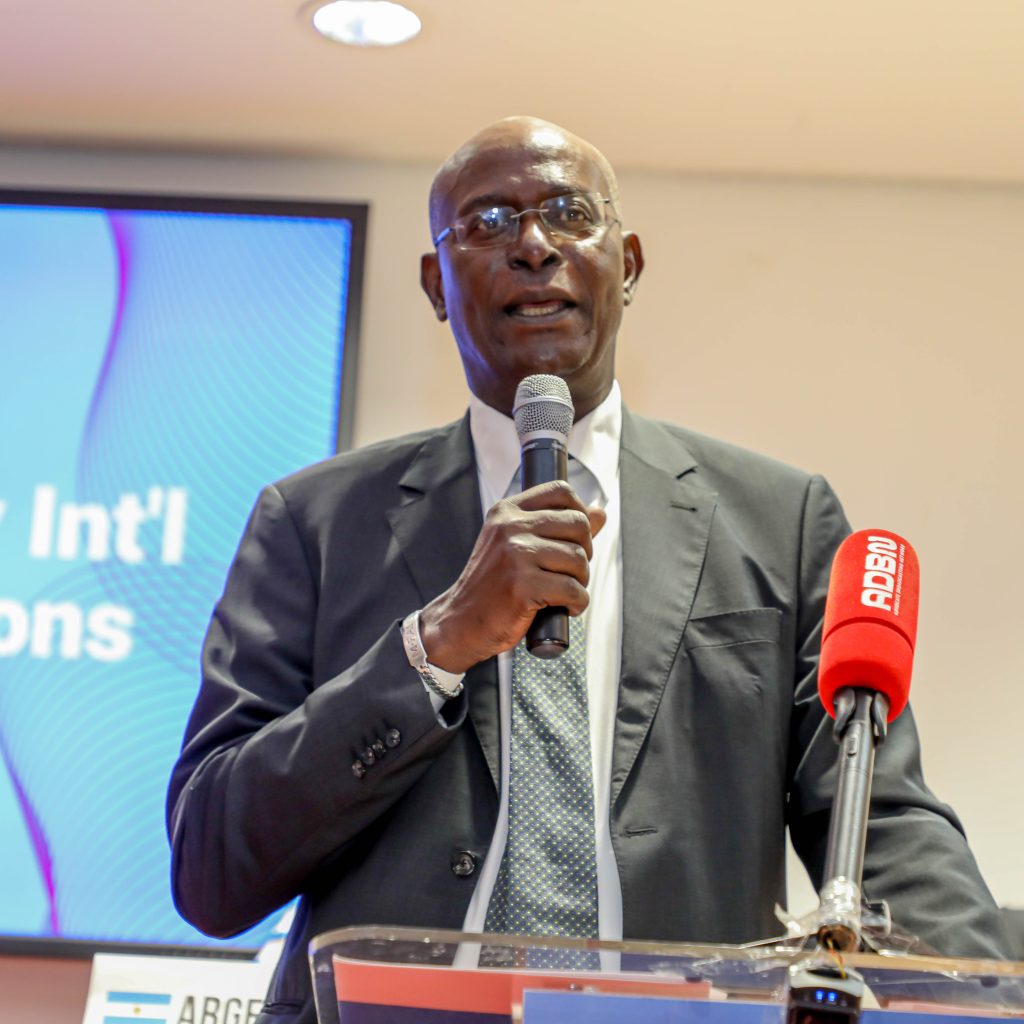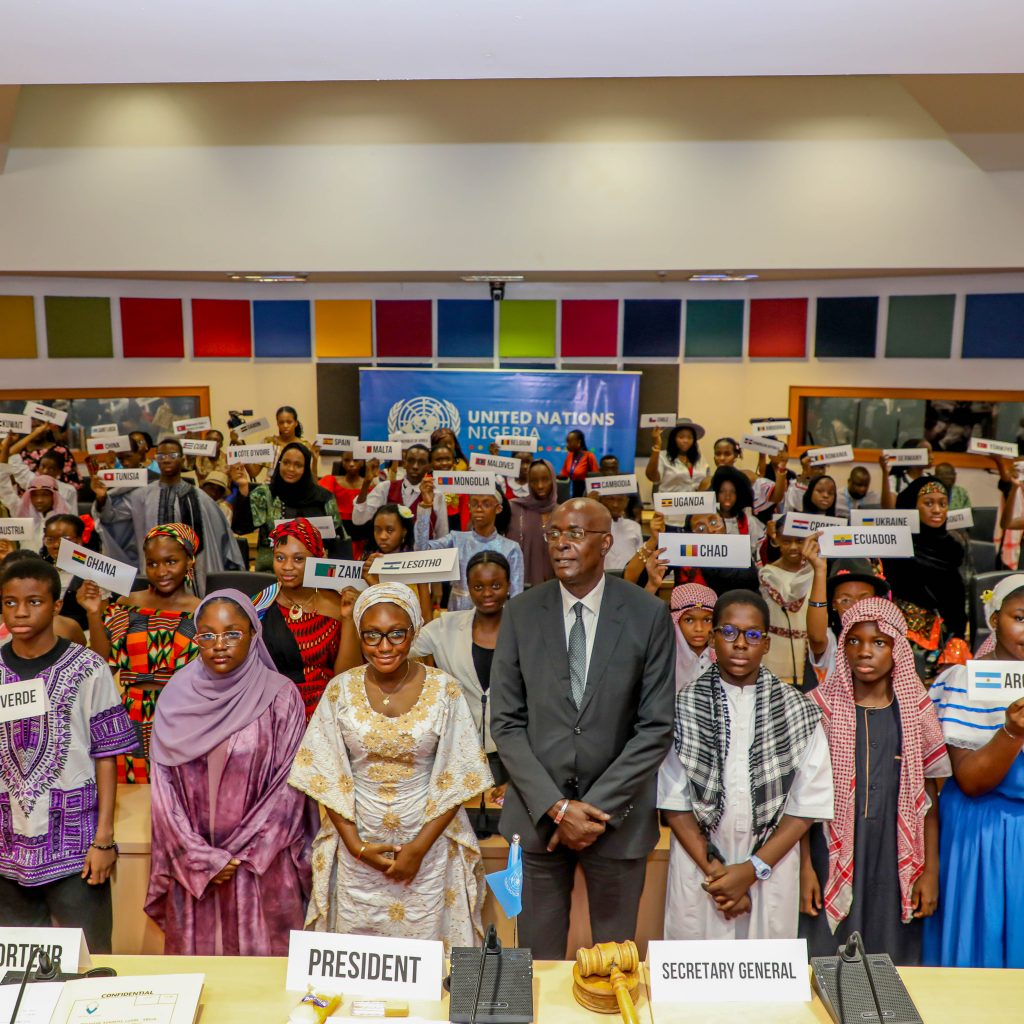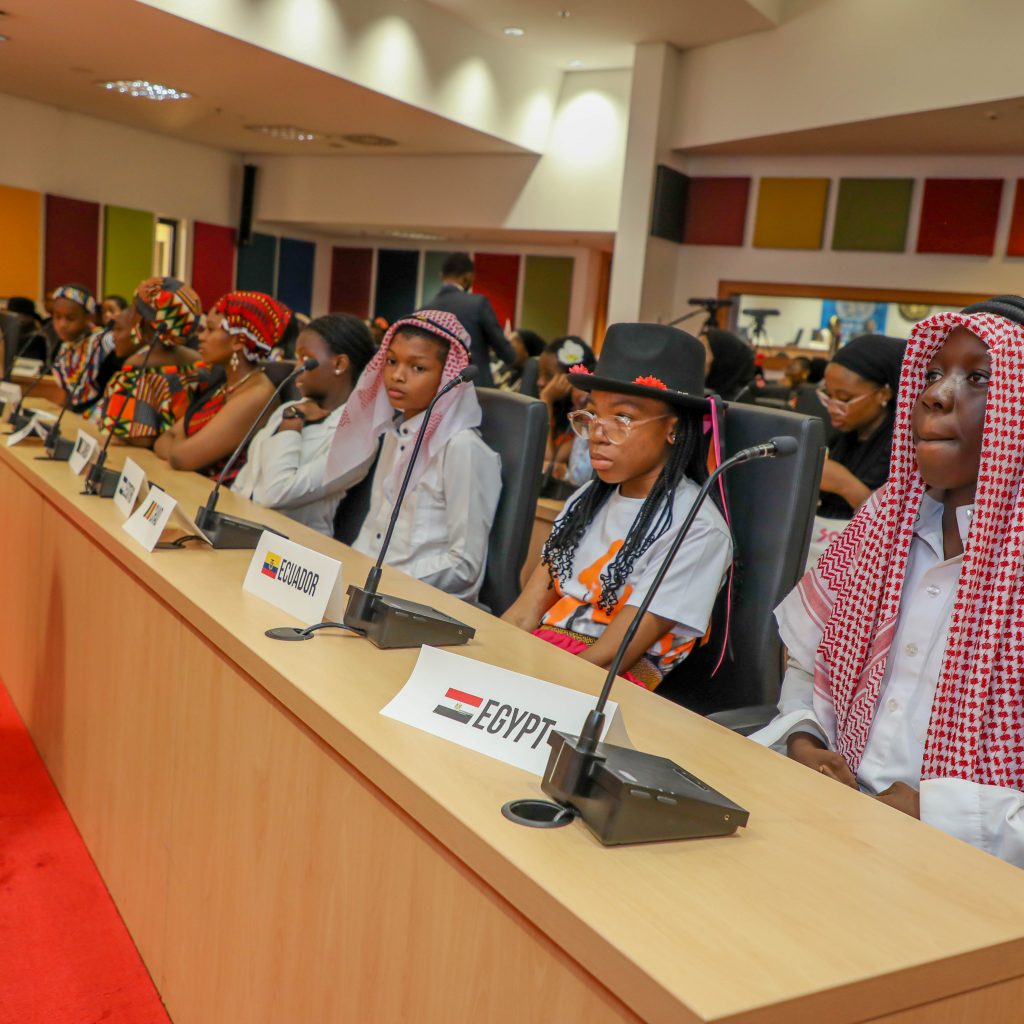Within the framework of the Pact for the future, and in the context of engaging young people via Model United Nations to chart the path for future generations, the UN Resident and Humanitarian Coordinator in Nigeria, Mohamed Malick Fall, has called for fresh ideas and brave collaboration in addressing today’s complex challenges.
“Today, we face new and complex challenges: climate change, technological disruption, inequality, and persistent conflicts. These demand fresh ideas and brave collaboration.” He said this on Tuesday, 15 July 2025, at the Premiere Academy International Model United Nations (PAIMUN) co-organised with the United Nations Information Centre (UNIC) in Nigeria and held at the UN House, Abuja.

According to him, the youth of today, diverse, dynamic, and determined, must rise as torchbearers of a better tomorrow, offering meaningful directions forward.
PAIMUN 2025 was in continuation of the commitment of UNIC Abuja to building the capacity of young people to learn about diplomacy, consensus-building, multilateralism, and how the United Nations works.

Fall noted that “This conference is more than a simulation. It is a vibrant space for dialogue, networking, and learning about consensus-building, diplomacy, and public speaking. Each delegate contributes a unique perspective, embracing negotiation over confrontation, and seeking common ground across cultures and beliefs.”
Concerning the 80th anniversary of the United Nations this year, the Resident Coordinator said, “As we embark on this journey together, let us honour the spirit of UN80 by asking not only what kind of world we want to live in, but what kind of world we hope to leave behind. Let us listen with empathy, speak with clarity, and debate with respect.”
Attended by delegates representing 120 out of 193 member states of the UN, PAIMUN

Mr Christopher Akinsowon, Principal of Premier Academy, lauded the conference for helping students better understand the workings of the UN General Assembly.
“This is a simulation of the UN General Assembly. It teaches students, and even adults, diplomacy, so we can resolve issues peacefully rather than resort to conflict or aggression.
“If all states and local governments in Nigeria embraced diplomacy, there would be fewer wars or crises.
“We need to teach young minds this because they will soon become our leaders,” he said.
In their resolution A/01/01 of 15 July 2025, which was adopted by concensus, the delegates called on member states to live up to the foundational promise to protect succeeding generations from the scourge of war, to abide by international law, including the Charter, and make full use of all the instruments and mechanisms set out in the Charter, intensifying the use of diplomacy, committing to resolve disputes peacefully, refraining from the threat or use of force, or acts of aggression, respecting each other’s sovereignty and territorial integrity, upholding the principles of political independence and self-determination, as well as strengthening accountability and ending impunity.
They further called for the inclusion of youth in decision-making and reminded the Member States that while education is a human right, millions of children of primary school age are still out of school around the world.
Similarly, PAIMUN 2025 called on member states to strengthen the multilateral system and its institutions, with the United Nations and its Charter at the centre, to keep pace with a changing world. They must be fit for the present and the future – effective and capable, prepared for the future, just, democratic, equitable, and representative of today’s world, inclusive, interconnected, and financially stable.
Oluseyi Soremekun, National Information Officer
United Nations Information Centre (UNIC), Abuja.
Tel. 0803 3030 002; Email: soremekun@un.org
Stay ahead with the latest updates!
Join The Podium Media on WhatsApp for real-time news alerts, breaking stories, and exclusive content delivered straight to your phone. Don’t miss a headline — subscribe now!
Chat with Us on WhatsApp




